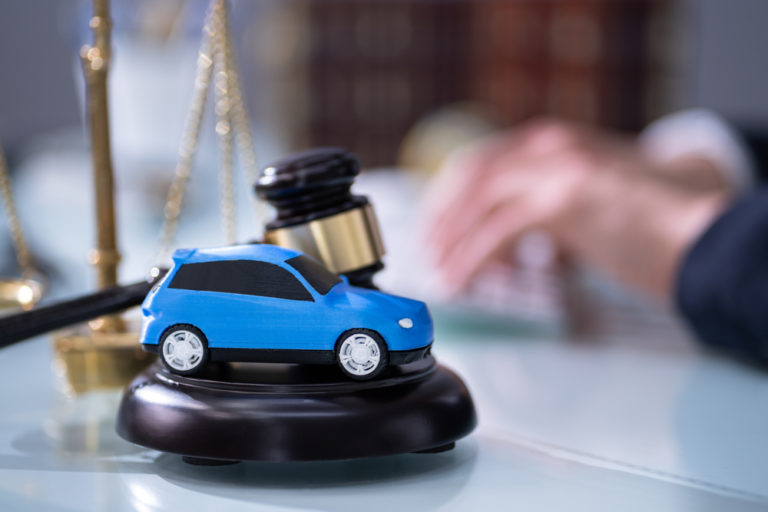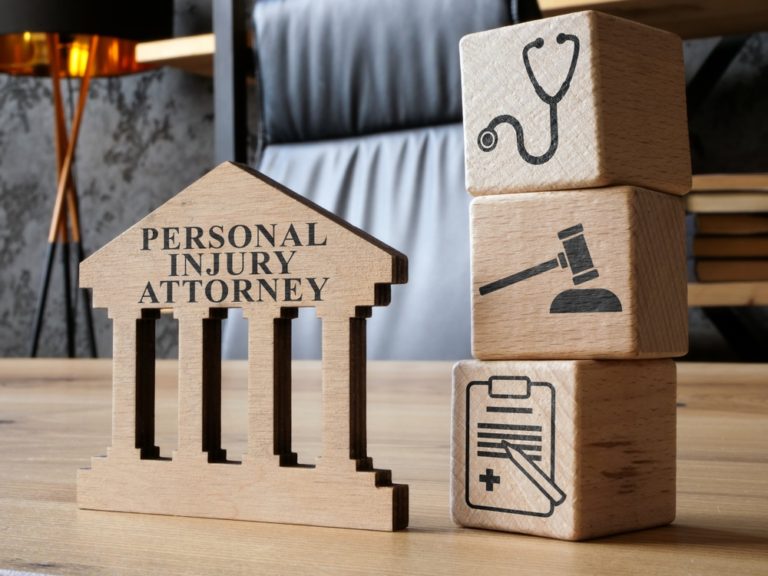There are numerous factors that combine to determine the value of a personal injury settlement amount. No two injuries are exactly the same, and the same can be said for accidents. All of the factors that come together in your case are unique.
A personal injury claim is crucial in seeking compensation after an accident caused by negligence. Understanding the potential factors that could impact your personal injury settlement might not give you an exact answer on the value of your case, but it could give you insight into what to expect.
The attorneys of Olson & Sons are ready to advise you on the strength of your personal injury case. During your initial consultation, we can review the facts and advise you on what you might be able to recover. Schedule your free consultation today to learn more about what goes into your personal injury settlement value.
The Extent of your Injuries and Personal Injury Settlement Amount in Hawaii
The extent of your physical injuries is a major factor in determining the value of your personal injury case. Assessing pain and suffering resulting from accident related injuries can be challenging, as it is important to account for both immediate and future impacts, including ongoing pain or psychological effects. In general, the value of your case will increase based on the severity of your injuries. This is the case for a number of reasons.
Serious injuries are more likely to result in costly, ongoing medical care. The cost of this care can be high, especially if you require ongoing treatment for years to come. Serious injuries are also more likely to result in chronic pain or emotional trauma, both of which could lead to damages.
The At-Fault Party’s Insurance Coverage in Hawaii
Whether or not the party that injured you has insurance coverage could play a part in setting the value of your case. If you are injured by someone that is uninsured, it is possible that they lack the financial assets to make you whole. Even if liability is clear, they could simply be unable to pay everything you deserve.
That is often not the case when an insurance company is involved. Insurance companies play a crucial role in settlement negotiations and claims processing, significantly affecting the recovery amount. Insurance companies have endless resources and an obligation to cover the damages caused by their insured. Keep in mind that every policy has limits, so if your damages exceed that amount you might not have all of your damages covered.
Liability
Liability is another major factor in determining the value of your injury settlement. If the other party admits they were at fault, negotiating a settlement is usually more about what a fair value might be and less about whether a settlement is warranted at all.
Cases where the defendant disputes liability are different. If the other party refuses to take responsibility or even blames you for the accident, it could be difficult to secure a settlement offer at all. While cases with disputed liability can ultimately settle, the value of these claims is often dragged down during negotiations.
Delay
The amount of time you wait to pursue a personal injury settlement could have a negative impact on the amount you recover. Investigating a personal injury case is a time-sensitive matter, and any delay could put your attorney at a disadvantage. The longer you wait, the harder it could be to build a compelling case for negligence.
If you wait too long, you could miss out entirely on your chance to file an injury lawsuit. This is due to a legal concept known as the statute of limitations. If the statutory period expires before you file your lawsuit, the court could prevent you from ever pursuing your case. Our firm could ensure you file your suit on time and avoid these complications.
Damage Caps
Hawaii is one of the states that applies arbitrary caps on certain types of damages. These caps do not impact the total value of your settlement, but they do limit your non-economic damages. Non-economic damages are the subjective losses you might suffer, like your pain and suffering or emotional distress. State law limits these damages to a maximum of $375,000.
The good news is that there are some ways around these caps. If you are injured in an accident involving multiple defendants, the cap might not apply. There are also no caps when it comes to injuries caused by intentional torts. Our firm could review the facts of your case and advise you on whether damage caps apply to you.
Your Ability to Prove Negligence
Proving negligence is essential to winning a personal injury case. This means demonstrating that the other party had a duty of care towards you, they breached that duty, and their breach directly caused your injuries. The stronger the evidence supporting your claim, the more likely you are to secure a higher settlement. Evidence could include photos or videos of the accident scene, witness statements, medical records, and expert testimony.
The Type of Accident
The nature of the accident itself can significantly influence the value of your settlement. Some types of accidents are often viewed as more severe due to their potential for catastrophic injuries, such as:
- Motor vehicle accidents: These include car, truck, motorcycle, and pedestrian accidents, often resulting in serious injuries like broken bones, head trauma, and spinal cord damage.
- Medical malpractice: Negligence by healthcare providers can lead to misdiagnosis, delayed treatment, surgical errors, and birth injuries.
- Premises liability: This covers injuries on someone else’s property due to hazardous conditions, such as slip and falls, dog bites, and inadequate security.
- Product liability: If a defective product causes injury, the manufacturer or distributor could be held liable.
Shared Fault (Comparative Negligence)
Hawaii follows a modified comparative negligence rule. This means if you are found partially at fault for the accident, your compensation will be reduced proportionally to your degree of fault. For instance, if you are awarded $100,000 but are found 20% at fault, your award will be reduced to $80,000. However, if you are found more than 50% at fault, you cannot recover any damages.
The Strength of Your Legal Representation
An experienced personal injury attorney plays a pivotal role in maximizing your settlement. They will investigate the accident, gather evidence, negotiate with insurance companies, and fight for your rights in court if necessary. An attorney’s reputation and track record of success can influence the settlement amount offered by insurance companies.
Your Economic Damages
Economic damages are tangible losses that are relatively easy to quantify. Medical treatment is a vital part of the claim process, as it encompasses various expenses related to emergency visits, therapy, and ongoing care. Medical bills represent the financial losses incurred from an injury, including current and future expenses for medical treatment, which can significantly affect the overall settlement amount. These include:
- Medical expenses: Past, current, and future costs for doctor visits, hospital stays, surgeries, medications, physical therapy, and other treatments.
- Lost wages: Income lost due to time missed from work, as well as any future loss of earning capacity if your injuries prevent you from returning to your previous job or career.
- Property damage: The cost to repair or replace your damaged vehicle or other property.
Your Non-Economic Damages
Non-economic damages are subjective losses that are more difficult to measure. However, they are no less important and can significantly increase your settlement. In a personal injury lawsuit, understanding the legal processes and time limits associated with filing such claims is crucial. These include:
- Pain and suffering: Physical pain and discomfort caused by your injuries.
- Emotional distress: Mental anguish, anxiety, depression, post-traumatic stress disorder, and other psychological impacts.
- Loss of enjoyment of life: Inability to participate in hobbies, activities, and social events you previously enjoyed.
- Loss of consortium: Loss of companionship, affection, and support in your relationships with loved ones.
The Insurance Company’s Tactics
Insurance companies are notorious for trying to minimize payouts. Personal injury protection (PIP) benefits cover medical expenses incurred due to injuries from the accident, distinguishing it from property claims and bodily injury claims. They may try to delay your claim, dispute liability, downplay your injuries, or pressure you into accepting a lowball offer. An experienced attorney can help you navigate these tactics and ensure you are not taken advantage of.
The Importance of Documentation
Thorough documentation of all aspects of your case is crucial. Keep records of medical appointments, treatments, expenses, communications with insurance companies, and any other relevant information. This documentation will strengthen your claim and help your attorney build a compelling case for maximum compensation.
Ready to Start Your Personal Injury Case?
Don’t wait to seek legal counsel. The sooner you contact an attorney, the sooner they can start working on your case. If you’ve been injured in Hawaii due to someone else’s negligence, contact Olson & Sons today for a free consultation. Our experienced attorneys will review your case, explain your options, and guide you through the legal process to help you achieve the best possible outcome.
Talk to an Attorney About Your Injury Settlement in Hawaii
If you have been injured in Hawaii through no fault of your own, it is understandable for you to wonder what your settlement might be worth. In most personal injury cases, the common outcome is that many tend to settle out of court rather than go to trial, with the decision to settle or proceed to trial depending on the specifics of each case.
The reality is many factors could go into determining its value, including liability, insurance coverage issues, and any delay in filing your case. If you are ready to give yourself the best opportunity to secure fair compensation, the team at Olson & Sons is ready to help. Call right away for your free consultation.
FAQ: Understanding Personal Injury Settlements in Hawaii
What factors determine my personal injury settlement amount in Hawaii?
The value of your settlement depends on various factors, including the severity of your injuries, the other party’s insurance coverage, their liability, any delay in filing your claim, the strength of the evidence, and your ability to prove negligence.
Are there limits on damages in Hawaii?
While Hawaii does not cap economic or punitive damages, there is a $375,000 limit on non-economic damages (pain and suffering, emotional distress, etc.) in most cases.
What happens if I am partially at fault for the accident?
Hawaii follows a modified comparative negligence rule. If you are found partially at fault, your compensation will be reduced proportionally to your degree of fault. If you are more than 50% at fault, you cannot recover any damages.
Why is it important to hire an experienced personal injury attorney?
An attorney can help you navigate the complex legal process, gather evidence, negotiate with insurance companies, and fight for maximum compensation. Their expertise can significantly influence the outcome of your case.
What types of damages can I recover in a personal injury settlement?
You can recover both economic damages (medical expenses, lost wages, property damage) and non-economic damages (pain and suffering, emotional distress, loss of enjoyment of life).
How long do I have to file a personal injury lawsuit in Hawaii?
The statute of limitations for most personal injury cases in Hawaii is two years from the date of the accident. It’s crucial to file your lawsuit within this timeframe to avoid losing your right to compensation.
What should I do after a personal injury accident in Hawaii?
Seek immediate medical attention, document everything related to the accident and your injuries, and contact a personal injury attorney as soon as possible to discuss your options and protect your rights.
Related Content: How Are Personal Injury Settlements Paid Out in Hawaii?








